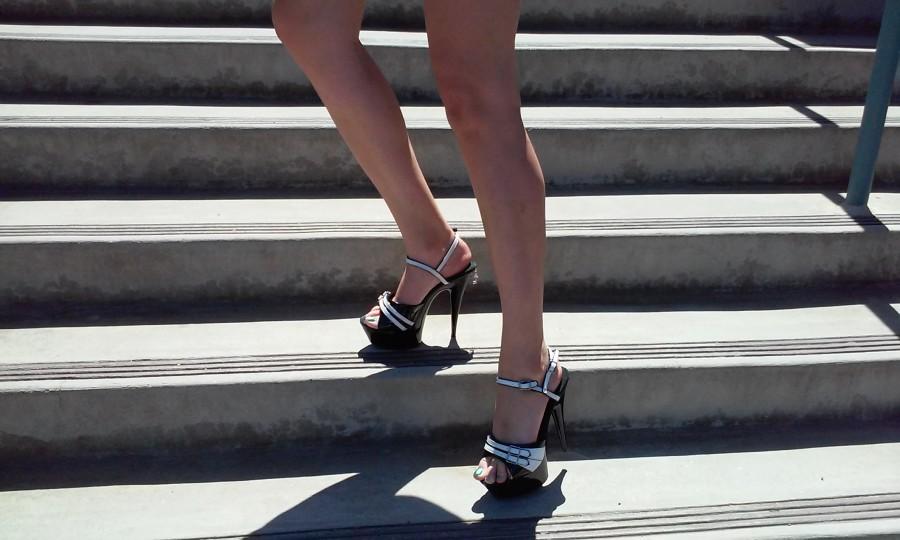By Sarah Hughes
Senior Staff Writer
Clothing choice reflects individuality and people shouldn’t be disrespected in the name of modesty.
I’ve heard full grown adults of both gender tirade about how they thought bigger people shouldn’t wear revealing outfits. I’ve witnessed people talk about how they “don’t like seeing that, it’s disgusting,” when the “that” was a man, a woman or a child.
This bashing doesn’t limit itself to body type. I’ve also heard it done on the basis of how someone’s lack of clothes made them somehow dirtier than the rest of us.
Worst of all, I’ve had people close to me judge me harshly because they didn’t agree with my choices. Words and insinuations have been said resembling “slut,” “whore,” etc. I’ve been told my tankini in a pool at summer camp would cause boys to have difficult impure thoughts. But their naked chests, nowhere near the pool, were presumed to have no effect on me as a high schooler. A comment from a stranger comparing me with a prostitute was once given because I was wearing the equivalent of more than a string bikini.
Whether the apparel-prescribing person’s motivation is religion or an aversion to a particular flesh, I find the constant advising of modesty to be controlling and ill-considered.
There are many reasons why people wear what they do. Climate influences dress. Areas of high heat often have less clothing or looser, more natural fibers. Activity of the day can determine how one dresses. People wear clothing for others and themselves. These choices reflect individuality and choice, as well as provide a pastime.
Dress can be a sign of individuality and rebellion. In Survey of Historic Costume, Phyllis Eubank and Keith Tortura point to flappers, hippies and youth culture. These are all examples of young people who explored themselves through clothing.
College is often a time where new adults are expressing themselves with less dress code rules than they had in high school. They are exercising buying power and freewill. The clothing shrinks on many women, and youth play with new styles.
Clothing investigation seems to be a phase many have to go through, though many will inevitably pick sensible shoes over high-heels on stairs eventually. Silly as some clothes many look, they offer valuable cues to others about who we want to be and who we want to attract.
Dress is adhered to in part to signal to a subculture our inclusion or availability. “Objects become signs of forbidden identity, sources of value.” Dick Hebdige said in Subculture and Style.
When it comes to modesty, it is a fine trait when one chooses it for themselves, but a rude command when others dictate it. Each determines what the word means, for it can be moderation, be it internal or external, limited to one virtue, but not the next.
We shouldn’t tell people what to wear because how a person dresses should be based on their comfort and choice. How someone dresses is essentially their choice. By respecting someone else’s decision, you respect your own. By judging someone based on what they wear, we reveal ourselves as judgmental and slander their reputation.
I find it odd that modesty is often dressed as a lack of nudity. The hasty generalization from “barely clothed” to “of dubious moral character” doesn’t make sense. It is as if the body is an object of shame, or at least the narrow bits that can’t be seen in polite company are. People are born naked. Disrespecting someone based on an aversion to their body is your problem, not theirs.
Stonings, gossip, alienation and other tragedies have been committed in the name of modesty. It often seems to be a trait that is applied to women specifically. Could this be a carryover from times when lineage relied on a son being unquestionably his father’s? From a time when women were considered the weaker sex, were told to say in the domestic sphere and were thought to be more emotional?



Tyler Turner (Orlando) • Sep 30, 2014 at 6:25 pm
Great article Sarah… Thanks for the insight… You are a class act!